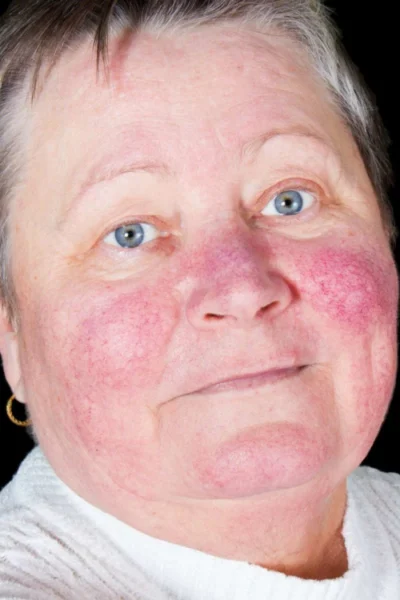Lupus is an uncommon skin condition. As a result, patients struggle to find effective treatments. We understand the frustration of dealing with cutaneous lupus. At Trillium Clinic Dermatology in Chapel Hill, our solutions are designed to help Chapel Hill dermatology patients find a good lupus treatment. Using advanced dermatology treatments, we will help you get your lupus under control. Start an advanced skin lupus treatment today!

What is Cutaneous Lupus?
Cutaneous lupus typically presents with skin-related symptoms, including a rash that can appear on different parts of the body, especially areas exposed to sunlight. The rash may be red, raised, scaly, and may cause itching or pain. It often has a round or disc-shaped appearance, hence the name “discoid” lupus. Individuals with cutaneous lupus are often sensitive to sunlight and may develop skin rashes or worsen existing symptoms when exposed to UV light. Taking precautions such as wearing protective clothing, using sunscreen, and avoiding excessive sun exposure can help manage photosensitivity.
What Is the Association between Cutaneous Lupus and Systemic Lupus?
Systemic lupus erythematosus (SLE) association: Cutaneous lupus can occur on its own, but it is also associated with systemic lupus erythematosus (SLE), a more widespread form of lupus that can affect multiple organs. Some individuals with cutaneous lupus may eventually develop SLE or have other systemic symptoms such as joint pain, fatigue, or kidney involvement.
What are the types of Cutaneous Lupus?
- Cutaneous lupus is divided into several subtypes:
- Acute cutaneous lupus erythematosus
- Subacute cutaneous lupus erythematosus
- Chronic cutaneous lupus erythematosus
Subacute Cutaneous Lupus Erythematosus (SCLE) is a nonscarring, non–atrophy-producing, photosensitive dermatosis. SCLE commonly develops in sun-exposed areas, including the upper back, shoulders, extensor arms, neck, and upper torso, while the face is often spared. - Chronic cutaneous lupus erythematosus is further subdivided into:
- Discoid lupus erythematosus
- Lupus erythematosus profundus
- Chilblain cutaneous lupus
- Lupus tumidus
- Discoid Lupus Erythematosus (DLE): Discoid lupus causes round, coin-shaped lesions (sores). The sores most commonly develop on your scalp and face, but they may show up on other parts of your body. Discoid lesions typically do not hurt or itch. They may be scaly, thick or red. When the lesions go away, they may leave scars or skin discoloration
How is Lupus Diagnosed?
- Physical exam
- Laboratory studies
- Histology
- Antibody serology
- Direct immunofluorescence
How is Cutaneous Lupus treated?
Chapel Hill dermatology patients need to find a dermatologist near them to monitor their lupus.
Cutaneous lupus treatment plans may vary depending on the severity of the condition and individual needs.
Treatment for cutaneous lupus aims to control symptoms, reduce inflammation, and prevent or minimize flare-ups. Depending on the severity and extent of the symptoms, treatment may involve:
- Topical corticosteroids or calcineurin inhibitors: These medications can be applied directly to the affected skin to reduce inflammation and control symptoms.
- Antimalarial medications: Drugs like hydroxychloroquine or chloroquine are commonly prescribed for cutaneous lupus as they have both anti-inflammatory and immunomodulatory effects.
- Immunosuppressive medications: In more severe cases, medications that suppress the immune system, such as methotrexate or azathioprine, may be used to control symptoms.
- Sun protection: Practicing strict sun protection measures, including wearing protective clothing and applying sunscreen regularly, is essential for managing photosensitivity.
Embark on your journey to radiant skin
Lupus is a chronic condition, often very severe, with periods of flare-ups and remission. Regular follow-up appointments are needed to follow the disease and adjust treatments. Chapel Hill dermatology patients, who suffer from lupus, can schedule an appointment with us here. A member of our expert dermatology team will conduct a total evaluation of your skin. They will also check for any other lupus symptoms. Together, our expert dermatology team will explore the various treatment options so that we give you the best treatment for your lupus. Patients looking for a dermatologist near Raleigh, Carrboro, Hillsborough, Pittsboro, Mebane, Durham, Burlington, Cary, and Alamance, can call our center for dermatology in Chapel Hill today to learn more.

